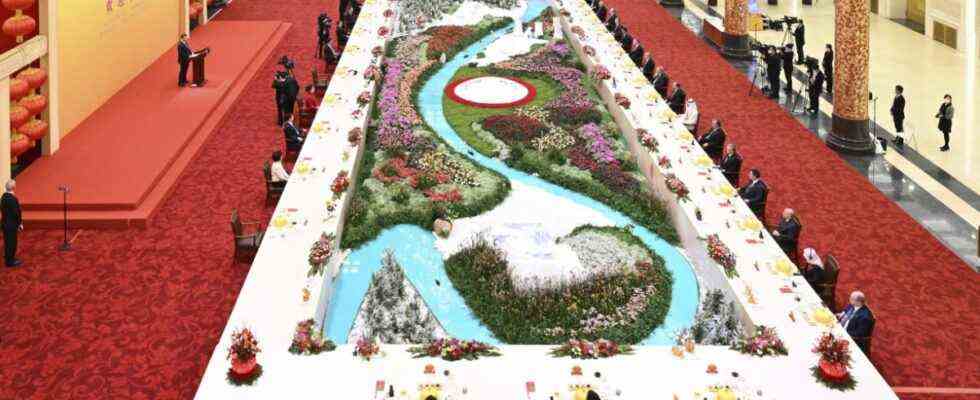If that’s not a big train station: China’s head of state and party leader Xi Jinping invited to the Great Hall of the People in Beijing on Saturday. For a celebratory banquet as part of the opening of the Winter Olympics. Of course there weren’t any common people there, except maybe the waitresses. Rather, the guest list evokes memories of the “axis of evil” once proclaimed by the United States. But at least there was a German sitting next to dictators and other autocratic leaders from Kazakhstan, Uzbekistan, Turkmenistan, Egypt and Serbia: Thomas Bach, President of the International Olympic Committee (IOC).
And Bach repeatedly opposes the politicization of the games. It is not yet known what he spoke about with guests such as Saudi Arabia’s Crown Prince Mohamed Bin Salman, the Emir of Qatar and the Egyptian ex-general and current President Abd al-Fattah al-Sisi. Perhaps he also spoke to Poland’s President Andrzej Duda and his Serbian colleague Aleksandar Vucic about the excellent Chinese cuisine. Or he made small talk with the high nobility, for example with IOC colleagues Prince Albert II from Monaco or the Thai Princess Sirindhorn.
Xi had already received Russia’s President Vladimir Putin the day before, after which he held further political talks with the visiting state guests. Significantly, last year Putin was also the first head of state to agree to attend the opening ceremony, despite growing criticism of China’s human rights record.
At the banquet for the guests of honor, Xi reportedly pleaded for “true multilateralism,” which in China usually means pushing back the supremacy of the US superpower. And after the unrest in Kazakhstan, speaking to President Kassym-Jomart Tokayev, Xi expressed his belief that the country could maintain social stability. The official Xinhua news agency quoted him as saying that an “independent, secure, stable and prosperous Kazakhstan” is in the common interest.
Because of tensions with China and human rights abuses in the host country, the US, Canada, Britain, Australia and other countries boycotted the celebration by not sending government officials. Germany and Japan were not represented either, although they did not speak of a boycott.

